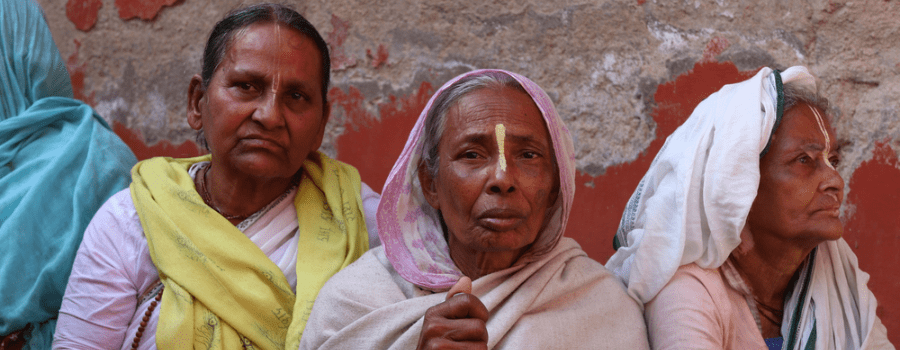October 15 |
Financial freedom for women is essential for their physical, emotional and mental health especially after the unexpected death of their husband. To empower women, the Government of India decided to provide pension to support widowed women living under extreme financial distress. The central government launched the Vidhwa Pension Yojana or the Widow Pension Scheme in all the states. This blog explains what is vidhwa pension yojana in detail.
What Is The Vidhwa Pension Yojana?
Vidhwa Pension Yojana is a widow pension scheme launched by the Central Government. This scheme helps provide financial assistance in the form of a fixed, regular monthly income to widows managing their livelihood depending on other family members after their husband's death.
The financial support provided by the state governments and the process of application vary between the states. The monthly pension helps the poor widows earn a living, become more self-confident, and improve their economic condition. However, the children or any other family member of the widowed woman will not be entitled to the pension benefits after the widow's death.
Eligibility Criteria For The Vidhwa Pension Yojana
Here are a few pointers stating the eligibility criteria for the widow pension scheme.
- The pension benefit under the Vidhwa Pension Yojana is available only for widows below the poverty line.
- The widow's age must be between 18 and 60 years of age.
- If the widow decides to get married to another person after the husband's death, she will not be eligible for the benefits under the scheme.
- If the widow has children who have become adults and can manage the expenses required to care for her well-being, she will not be eligible for the monthly pension.
Benefits of The Widow Pension Scheme

The widow pension scheme offers various benefits, some of which are as follows:
- Financial security: The government provides a fixed, regular monthly income ranging from ₹300 to ₹2,000, offering consistent support to widows who have limited or no independent income.
- Direct fund transfer: The state government deposits the pension amount directly into the widow's bank account, which helps ensure timely payments and reduces the risk of misuse.
- Supports elderly widows: Widows receive an old-age pension of ₹500 after the age of 80 years, providing additional financial assistance during old age.
- Emergency assistance: The widow pension scheme acts as a reliable source of funds during financial difficulties, helping widows cover important household and medical expenses.
- Promotes independence: This scheme helps widows manage their own finances and make decisions without depending on family members or relatives.
- Enhanced life quality: The schemes help provide a stable income that allows widows to meet basic needs, maintain personal dignity, and live with confidence.
Vidhwa Pension Yojana Application Process
The vidhwa pension yojana provides financial assistance to widows, which helps ensure they receive a fixed monthly income to support their livelihood. Eligible widows can apply for this scheme via two methods, online and offline. Below are the detailed steps for each process.
Online process
Follow these steps to apply for the widow's pension online:
- Step 1: Check your state’s Widow Pension Scheme details and confirm your eligibility before applying.
- Step 2: Visit the official website of the Social Welfare Department or the e-Governance portal specific to your state.
- Step 3: Register as a new user by providing the required details, or log in using your existing credentials.
- Step 4: Navigate to the list of available schemes and select “Vidhwa Pension Yojana” or “Widow Pension Scheme.”
- Step 5: Fill in the application form with accurate personal, marital, income, and bank account details.
- Step 6: Upload the required documents, such as your husband’s death certificate, ID proof, and bank passbook.
- Step 7: Review all the details carefully before submitting the form online.
- Step 8: After submission, note down your application reference number to track your application status through the portal.
Offline process
You can also apply offline to avail the benefits of the widow pension scheme:
- Step 1: Visit your nearest Janpad Panchayat Officer, District Social Welfare Department Office, or the Commissioner of your Municipal Corporation.
- Step 2: Obtain the vidhwa pension application form from the concerned office.
- Step 3: Fill out the form carefully using black or blue ink, ensuring all details are correct.
- Step 4: Attach photocopies of all required documents, including your death certificate, ID proof, and bank details.
- Step 5: Submit the completed form to the same office.
- Step 6: The authorised officer will verify your documents and eligibility.
- Step 7: Once the application is approved, the pension amount will be directly deposited to your registered bank account.
Documents Required For The Widow Pension Scheme
While applying for the Widow Pension Scheme, it is important to have the following documents for successful registration:
- Photo of the applicant
- ID proof(Aadhar card, ration card, voter ID card)
- Birth certificate
- Bank passbook
- Husband's death certificate
- Income certificate
Who Should Opt For The Widow Pension Scheme?
The following groups of women can opt for the widow pension scheme.
- Single women below the poverty line who cannot fulfil their financial needs with their current earnings and seek family support can apply for the Widow Pension Scheme. It can help reduce the financial burden to a considerable extent.
- Single women aiming for personal growth and development may also find this scheme useful. It can cover a specific expense each month, helping them plan for their future.
- Single women earning a limited income and unable to support their dependent families should opt for the scheme. For instance, a widow responsible for the well-being of her husband’s parents and children can get financial relief through this support.
Insurance policy under Married Women’s Property Act (MWPA)
To protect the rights of a wife or children, a husband can buy an insurance policy for himself and register it under the Married Women’s Property Act (MWPA). The beneficiaries in the policy can be the wife and/or the children of the policyholder. They will receive the death benefit of the policy in the case of the untimely demise of the husband. The benefits from the policy cannot be claimed by relatives, parents, siblings, or creditors. This safeguards the family of the policyholder in case of his demise.
If the policy includes survival or maturity benefits, the wife and/or the children who have been named as beneficiaries in the policy shall receive the benefits.
Life Insurance Retirement Solutions to Benefit Single Women
Ensuring financial security for family should be a priority for every individual. If the husband passes away, a woman can face a lot of stress that can affect her and the children's future. Life insurance plans help provide a life cover and a death benefit to the loved ones in case of the insured person's unexpected demise during the policy term.
Insurers also offer retirement plans that help you invest your retirement corpus for annuity benefits and other savings options. Single women receiving a reasonable income can buy a retirement policy, which helps ensure they receive a regular monthly income to manage their regular expenses after retirement.
Our Tata AIA retirement policy offers flexible features to modify it based on individual family commitments. For instance, one can choose the immediate or the deferred annuity options to start receiving the monthly income or delay it to a future date for enhanced benefits.
Conclusion
Women in India should always have an environment to gain financial freedom and live independently. The Vidhwa Pension Yojana is a widow pension scheme introduced by the government for widows below the poverty line to provide financial assistance. The application process and pension amount vary between the states. It is important to educate the widows in our country about such schemes to help them improve their financial condition without family support.







 FOR EXISTING POLICY
FOR EXISTING POLICY 
 FOR NEW POLICY
FOR NEW POLICY 




